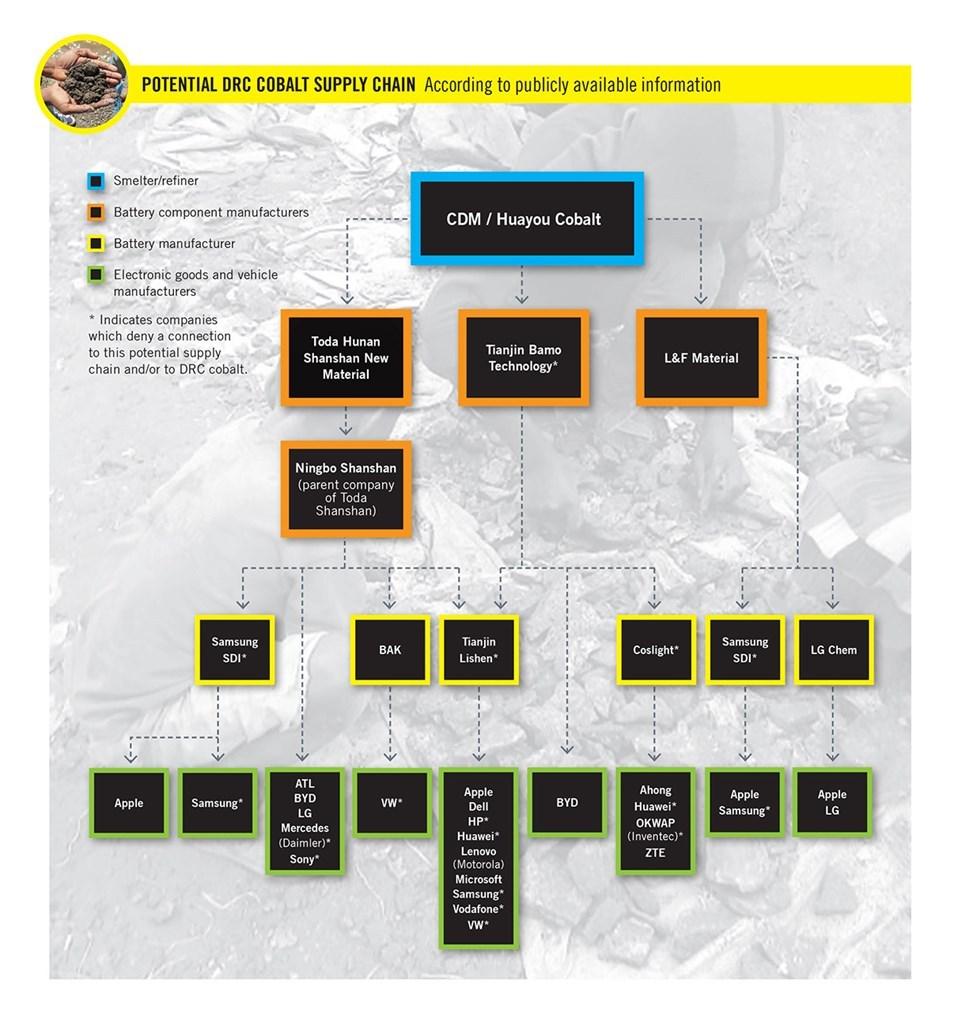
Child labor controversies in the tech industry have been around for almost as long as the cell phone. Some pundits will argue it's an endemic evil of the tech industry: The demand for low prices spurs companies to seek out contractors that use labor practices deemed unacceptable to Western consumers, like child labor, trafficking and inadequate pay.
And large corporations know that while low prices are often the market drivers of their niche industries, ethics speak volumes as well. So, corporations are often just as quick to condemn child labor practices abroad and announce strategies and benchmarks that will prove to consumers that they are listening.
A recent Amnesty International report, however, suggests that human rights abuses still take place in the tech industry -- and that they are an ingrained part of the mechanism that brings us our electric car batteries and smart phones. Sixteen multinational tech companies, including Apple, Samsung, Daimler and Microsoft, have been accused of supporting and furthering human rights abuses through their dependence on artisanal cobalt mining in the Democratic Republic of Congo.
"The growing global market for portable electronic devices and rechargeable batteries is driving the growing demand for the extraction of cobalt, a key component in lithium-ion rechargeable batteries," say the authors of the report. They also note that 20 percent of the country's highly sought-after cobalt comes from its southern regions, where more than 110,000 miners provide the backbone for a global industry with lax safety regulations and heightened health risks for children. According to a 2014 UNICEF investigation, as many as 40,000 young children work in DRC's southern mines, usually without safety masks and gear.
"As with adult miners," Amnesty International corroborated, "they were exposed to high levels of cobalt on a consistent basis, but did not even have gloves or face masks to wear." In most cases, the authors pointed out, the financial gain of their work was nominal: "[The children reported] they worked for up to 12 hours a day in the mines, carrying heavy loads, to earn between one and two dollars a day."
Amnesty International traced the potential supply chain of DRC cobalt from the mine to the lithium-ion battery manufacturers in China and South Korea, on to the final destination: the smartphone and electric car battery multinationals.
The authors reached out to lithium-ion battery manufacturers as well as electric battery and smartphone manufacturers. Daimler, which manufactures electric car batteries, offered one of the more forthcoming responses:
“Due to the high complexity of automotive supply chains, we are, however, not able to definitely confirm whether or not cobalt in our products originates from this region or from the mentioned companies at any stage within our supply chains.”
The company said that it does conduct regular reviews to guard against child labor and to ensure sustainable business practices are being applied. Amnesty International notes, however, that the company did not state whether its reviews follow the standards established by the Organization for Economic Co-operation and Development (
According to Amnesty International, Apple did not directly address the researchers' questions about its cobalt procurement policies. It did, however, state that it was "currently evaluating dozens of different materials, including cobalt, in order to identify labor and environmental risks as well as opportunities for Apple to bring about effective, scalable and sustainable change.” The authors note that Apple has not explained why it did not addressed cobalt mining controversies before this date.
The phenomenal growth of the smartphone industry puts increasing demand on corporations to stay ahead in their material procurement. But as the report succinctly points out, it also offers an excellent venue for developing standards that will ensure human rights abuses don't become part of the mechanism that supplies our technology. Companies will benefit from consumer confidence in both their products and their ethical choices.
For more information, check out the video below:
https://youtu.be/7x4ASxHIrEA
Images: Amnesty International
Jan Lee is a former news editor and award-winning editorial writer whose non-fiction and fiction have been published in the U.S., Canada, Mexico, the U.K. and Australia. Her articles and posts can be found on TriplePundit, JustMeans, and her blog, The Multicultural Jew, as well as other publications. She currently splits her residence between the city of Vancouver, British Columbia and the rural farmlands of Idaho.














